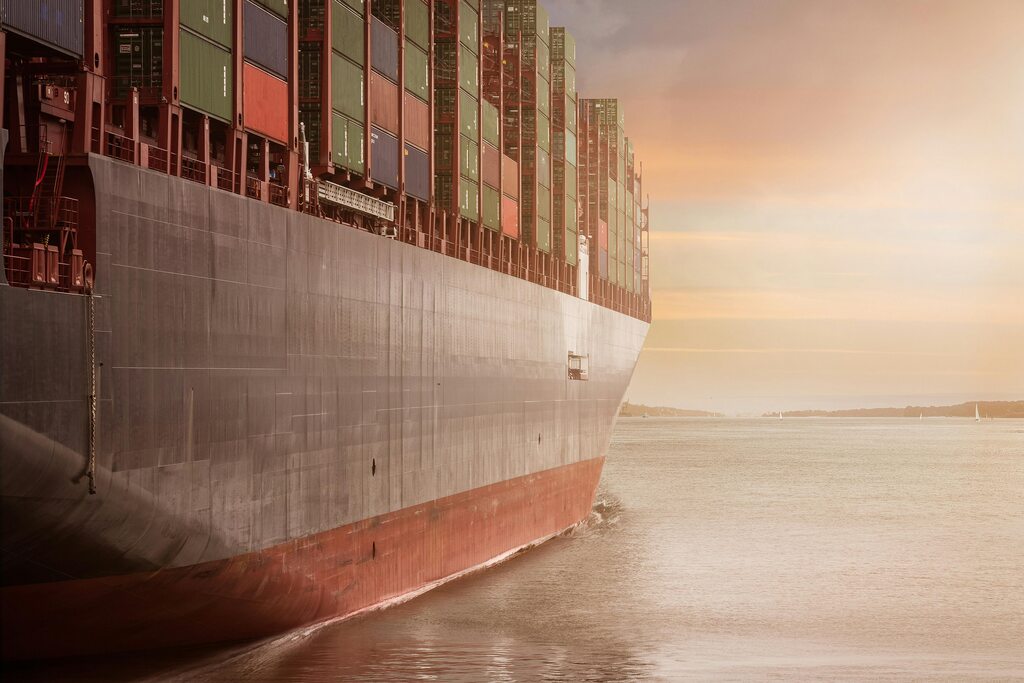
Trade is a great peacemaker
CRISPIN HULL COLUMN

Over the past week, several security experts in the US have been revealing that the US Administration wants Australia to speak out more clearly about supposed threats posed by China.
That is clearly the view of the Trump Administration, even though it has not declared it.
But Prime Minister Anthony Albanese shows no sign of doing anything about it. Indeed, his work to improve Australia-China relations and his proposed recognition of a Palestinian state have put some friction in Australia-US relations.
It is not new for Labor in Australia to hold back from falling in lock step with whatever the US does in the world, unlike the “All the way with LBJ” Coalition.
In 1965, Labor leader Arthur Calwell expressed vehement opposition to the decision of the Coalition Menzies Government to commit Australian troops to join US forces in Vietnam.
In 2003, Labor leader Simon Crean opposed the Coalition Howard Government’s decision to join the US in the Coalition of the Willing to invade Iraq.
They both said they would be vilified as unpatriotic at the time, but be vindicated later: foresight not hindsight.
The difference now is that Labor is in Government. The pity is that Labor was not in Government in 1965 and 2003 and our role in those disastrous wars would have been avoided.
This time the question is over China and its increasing military presence in the South China Sea and its attitude that it would be legitimate to use force to bring Taiwan under the control of the Communist Party of China.
Can we learn from history and not follow the US blindly into conflict with China over Taiwan? We should because that history is littered with folly.
Vietnam was a civil war, not a war of communist expansion. The Taliban is back in control in Afghanistan. The first Iraq war failed to capture and arrest Sadam Hussein who was guilty of waging an aggressive war. In the second Iraq war, no weapons of mass destruction were ever found and the invasion resulted in the rise of ISIS and untold death, destruction, and misery – not the promised peace and democracy.
So why should we go near another US-led folly over Taiwan?
In the meantime, maybe Albanese should be more outspoken about the so-called “threats” from China. He could cite the true position.
What is the threat? What about around zero? China has a massive population; significant naval, air, and land power; and large economic power. China says Taiwan is part of China and there are legitimate reasons why it should be under the control of the central Chinese Government.
Yet, the Communist Party of China has not exercised its national policing power to bring Taiwan under its control. This is presumably because the exercise would be so bloody and costly that it would set back China’s aim to be the predominant power in the Indo-Pacific or, indeed, the world, for a very long time.
Taiwan has a population of 23 million and is about 130km from the Chinese mainland. Some of its lesser islands are much closer.
Australia, on the other hand, has a population of 26 million and is about 7500km from China. So, if China is incapable at present of a quick invasion of Taiwan and takeover of its government, what prospect is there of China invading and subjugating a nation 7370km away over which it has no scintilla of a legitimate claim and which would require overflight and transit through Indonesia.
If China is not politically willing or militarily unable to do the relatively easy task of taking Taiwan, why would anyone imagine it would do the massively more difficult task of invading Australia?
Australia exports $220 billion worth of goods to China and imports $100 billion. China invests $90 billion a year in Australia. The recent lifting of China’s restrictions on Australia proves the point that China needs Australia for its prosperity as much as Australia needs China. Australia is not like the US which sees China as a competitor.
Trade is a great peacemaker.
China poses near zero risk to Australia. And it would pose an even less risk if it was silly enough to invade Taiwan and got a very bloody nose and serious military weakening while Australia stood on the sides and watched.
But US naval operations expert Bryan Clark, a senior fellow at the conservative Hudson Institute with close links to the administration, said the US is asking “why isn’t Australia being more straightforward about why they are buying these submarines”.
By not saying so, it made people in the administration think that “short of a direct attack on Australia, these submarines are probably not going to be in the mix”.
It is pretty telling. The previous Coalition Government signed up to AUKUS and the nuclear submarines to use against China which it had been baiting for years. Labor in Opposition went along with it so it would not be branded unpatriotic or anti-American.
The AUKUS deal is a dud made dudder by an escape clause that means the US does not have to deliver any submarines and Australia still has to contribute $3 billion to US shipbuilding and would be made even more dud if the US is allowed to dictate how Australia is to use the submarines.
It is a belittling insult to Australian sovereignty. We should decide which military hardware we will acquire and the circumstances in which it will be used.
We are buying submarines we may never get with money we haven’t got to fight an enemy we don’t have in places we don’t have to go to.
China is doing now – cementing its territory 80 years since being freed of Japanese occupation in 1945 – much as the US did in the 80 years since it was finally free of the British in 1783: the 1803 purchase-seizing of Louisiana; the 1823 Monroe Doctrine warning Europeans to stay out of the US’s western hemisphere; the war with Mexico 1846-48 in which it grabbed 1.3 million sq km of land; and the 1867 purchase of Alaska.
But unlike the US, China shows no sign of militarily interfering in other continents, as the US has done to its and Australia’s cost.
This article first appeared in The Canberra Times and other Australian media on 19 August 2025.
*Crispin Hull is a distinguished journalist and former Editor of the Canberra Times. In semi-retirement, he and his wife live in Port Douglas, and he contributes his weekly column to Newsport pro bono.
The opinions and views in this column are those of the author and author only and do not reflect the Newsport editor or staff.
Support public interest journalism
Help us to continue covering local stories that matter. Please consider supporting below.
